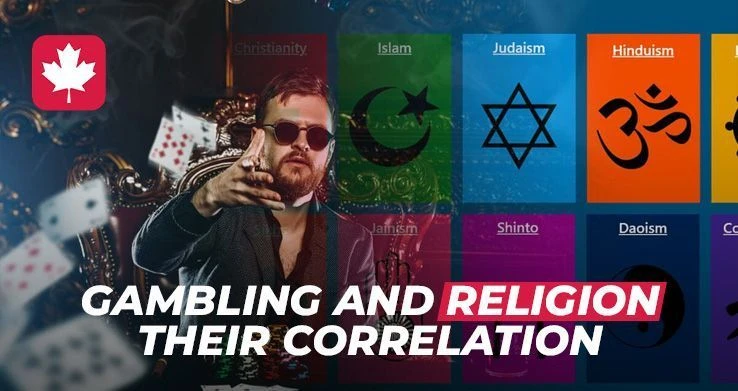Gambling and Religion – their correlation
On a "market for hope," gambling and religion compete with one another. That is the major contention of an essay by German academic Mark Lutter, which was just made available online and published in the journal Soziale Problem. You may download the article here: M. Lutter, "Concurrent on the Market for Hope: Religious Roots of Societal Problematization of Gambling," 2011.
For instance, if investors view initial public offerings (IPOs) as lotteries due to the positively skewed returns of IPO equities, their demand for payouts akin to lotteries and trading activity may result in early overpricing (e.g., Barberis and Huang, 2008). In general, equities with lottery-type characteristics would have lower average returns if investors showed a preference for them, everything else being equal. 1 Similar to this, the broad-based employee stock option (ESO) plans' popularity has been challenging to account for within the conventional economic framework.
Recent asset pricing and corporate finance literatures have acknowledged the significant importance of gambling religion in a variety of market contexts. Due to the fact that individual-level gambling and speculative actions cannot be directly seen, it has proven challenging to link consumer gambling preferences to overall market outcomes. In this study, we examine whether geographic variation in religious composition, particularly the variability in the ratio of Catholics to Protestants across U.S. counties, means allowing us to identify market-wide effects of gambling behaviour. We use people's religious beliefs as a proxy for their propensity to gamble.
Our decision to use religious background as a proxy for propensity to gamble is driven by the finding that religious background has a significant influence on one's gambling attitudes. The Protestant and Catholic churches, in particular, have quite different perspectives on gambling.
Since the beginning of the Protestant movement, there has been a strong moral resistance to gambling and lotteries, and many Protestants believe that gambling is a sinful activity. Despite variations in the fervour with which they reject gambling among Protestant churches, this objection is rather widespread. The Southern Baptists, the largest Protestant denomination, are particularly outspoken in their condemnation of gaming.
Roman Catholic Church
The Roman Catholic Church, in contrast, continues to have a tolerant stance toward moderate amounts of gambling and is less critical of gambling-related activities. Even bingo and charitable gaming events have been exploited by it as significant sources of funding (e.g., Diaz, 2000, Hoffman, 2000). Jews behave similarly to Catholics and are more accepting of gambling activities than members of other significant religious groups in the United States, while Latter-Day Saints (Mormons) have more in common with Protestants in terms of their attitudes about gambling.
The level of lottery spending and state lottery adoption laws both reflect the influence of these various perspectives on gaming. Previous empirical studies have demonstrated that a region's predominate local religion has an impact on how popular state lotteries are there (e.g., Berry and Berry, 1990, Martin and Yandle, 1990, Ellison and Nybroten, 1999). A few recent studies also show that views toward gambling that are influenced by religion affect financial choices (e.g., Kumar, 2009; Doran, Jiang, and Peterson, in press). We use our county-level religious composition measurements to support these findings.



FlameKiller1 Cool selection! Thanks to the author, I was just looking for something to ride on the weekend.



Hellworkers So much for "consumer care". As soon as they are strangled with taxes, everyone will really go to left-wing offices.



GodBJTTA Not exactly "when it wants". The provider releases a game with several RTP versions (e.g. 96%, 94%, 91%). And the casino, when it buys a slot for its site, chooses one of these versions. Therefore, in one casik, the slot can have a return of 96%, and in another – 91%. Always check the information about the slot before playing, this can usually be done by clicking on the "i" or "?" button inside the game itself.













































